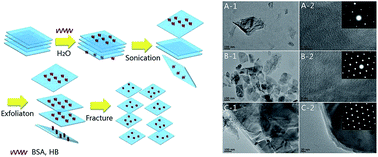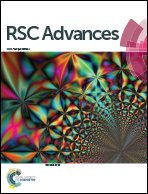Protein-induced ultrathin molybdenum disulfide (MoS2) flakes for a water-based lubricating system
Abstract
Monolayer or ultrathin transition metal dichalcogenides cover a wide range of atomically thin two-dimensional (2D) materials, whose fascinating properties have made them promising candidates for many applications. In this work, ultrathin MoS2 flakes were successfully exfoliated, induced by bovine serum albumin (BSA) or hemoglobin (HB), under vigorous ultra-sonication. They were used as additives for water-based lubricating systems and related investigations indicated that they could improve the friction performance and anti-wear abilities at a relatively low concentration: 0.10 wt% of additive contents can make the average friction coefficient stabilize in the range between 0.06 and 0.08, which results from the formation of a dynamic protective film on the friction surfaces. The protein-induced ultrathin MoS2 flakes are also expected to be useful for other hydrophilic lubrication systems, which possess great scientific value and promising application prospects compared with bulk or microscale lubricating additives.


 Please wait while we load your content...
Please wait while we load your content...